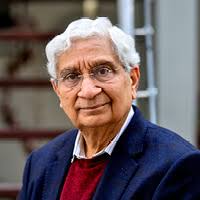Political interference has undermined institutions beyond repair, says Deepak Nayyar

New Delhi, July 10, 2025 — Political interference in Indian institutions has reached a tipping point. According to respected economist and former JNU Vice-Chancellor Prof. Deepak Nayyar, years of systematic interference have damaged India’s democratic bodies so deeply that many may never fully recover.
Speaking at a seminar on “Democracy and Institutional Integrity” at the India International Centre, Prof. Nayyar declared, “The damage to our institutions is not accidental. It’s deliberate, consistent, and extremely dangerous.”
Institutions Hollowed by Power, Not Neglect
Prof. Nayyar emphasized that India’s democratic structure is eroding from within. “It’s not about collapse. It’s about slow decay,” he explained. Institutions like the judiciary, universities, Election Commission, and media have lost their independence under sustained political pressure.
This pressure hasn’t come from outside forces, he warned. It originates from within the system—by political leaders who seek to centralize power and remove accountability.
Judiciary’s Integrity Under Question
Nayyar raised serious concerns about the judiciary’s current state. “Judges must protect the Constitution, not fear the government,” he said. He criticized the selective listing of cases and delays in politically sensitive verdicts.
The public, he warned, no longer sees the courts as impartial. “That trust, once broken, is hard to restore,” he added.
For deeper insights into institutional accountability, read our related post on Supreme Court and executive relations.
Bureaucracy Bending to Political Whims
He also highlighted the decline of bureaucratic independence. Civil servants, according to Nayyar, now face pressure to prioritize party loyalty over public service.
“Appointments, transfers, and promotions are often used to reward loyalty or punish honesty,” he explained. This culture, he argued, compromises both efficiency and justice.
Election Commission No Longer Neutral
Nayyar called out the Election Commission of India for losing its impartiality. “When voters suspect the referee is biased, democracy loses meaning,” he stated.
He urged reforms to restore the commission’s independence. Visit the Election Commission’s website to learn about its structure and functions.
Universities Losing Freedom of Thought
As a former JNU Vice-Chancellor, Nayyar spoke passionately about academic freedom. “Universities should be centers of learning, not ideological battlegrounds,” he said.
He condemned political interference in curricula and faculty appointments. “When the state decides what can or cannot be taught, it’s not education—it’s indoctrination,” he warned.
To explore related issues, check our article on Democracy and student dissent in universities.
Media No Longer Holding Power Accountable
Nayyar also criticized the media’s role in the institutional crisis. “Much of the press no longer questions power. It repeats what it’s told,” he said.
He pointed to corporate ownership, shrinking press freedom, and growing self-censorship as alarming trends. “Democracy cannot survive without a free and fair media,” he stated.
Citizens Must Speak Up
Despite his critical tone, Nayyar ended with a message of hope. “The system isn’t dead—but it’s on life support. Citizens must act before it flatlines,” he urged.
He encouraged young Indians, civil society groups, and academics to reclaim the democratic space. “Don’t stay silent. Democracy depends on your voice,” he concluded.
Reactions to Nayyar’s Remarks
His remarks received widespread attention. Academics, former officials, and activists supported his concerns. Former Chief Election Commissioner S.Y. Quraishi agreed, stating, “He has rightly flagged what many of us have feared for years.”
However, some political leaders called his remarks “alarmist” and “outdated.” A senior ruling party spokesperson claimed the institutions “are functioning better than ever.”
Still, many see Nayyar’s critique as a necessary wake-up call.
Final Word: Save Institutions Before It’s Too Late
“Political interference in Indian institutions is not just weakening democracy—it’s reshaping it,” Prof. Nayyar warned. “When institutions fall, rebuilding takes decades. But we still have time—if we act now.”






